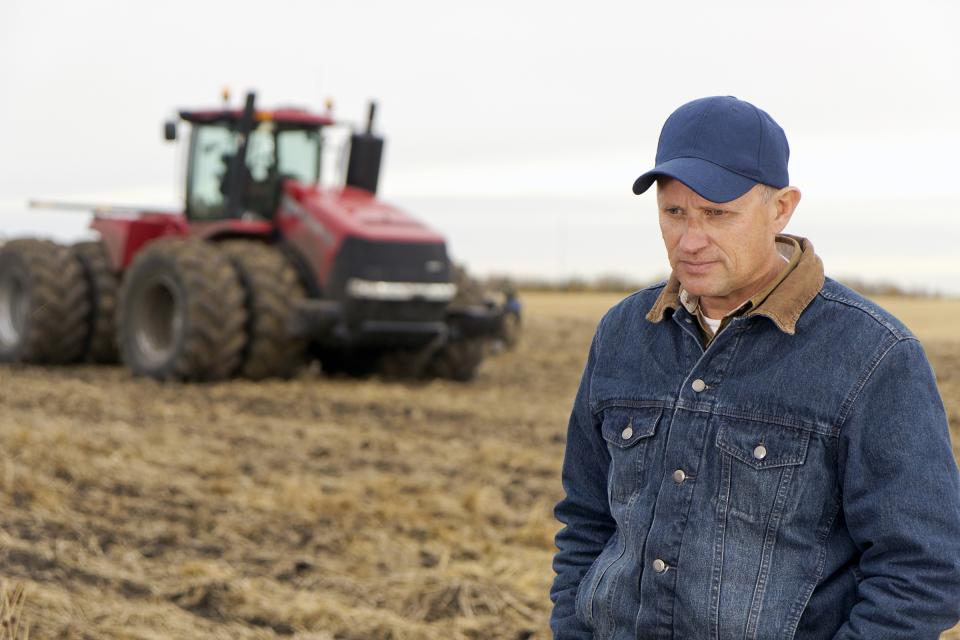
When Stressful Times Strain You and Your Family
Commodity prices have you down? Trying to cut costs without cutting profitability? Putting in long days and late nights? If this describes your situation, you are not alone.
In fact the Nebraska 2016 Farm Financial Health Survey showed that over 77% of the 936 producers who responded were concerned that they might not be able to obtain needed operating capital this year. Over 60% were concerned interest rates would increase. About 45% of those responding to the survey, conducted by the University Of Nebraska-Lincoln’s Department of Agricultural Economics, felt their overall financial condition would decline in 2017; 46% expected it to remain the same. Given these responses, it was probably no surprise that 54% of respondents said they were financially stressed.
Finances tend to be the largest cause of conflict among family members. Research conducted by Jurich and Russel (1987), Ortega (1994), and other researchers found that farmers who experienced tremendous loss of income and property suffered chronic stress and depression. Stress can be defined as anxiety, strain, or tension caused by a new burden or outside force. It results in an internal struggle that often causes apprehension, misgiving or uneasiness, according to Webster’s dictionary.
While stress is a normal part of life, too much stress can trigger physical illness. Nebraska Medicine at the University of Nebraska College of Medicine reports that if stress is constant, the high levels of cortisol released from long-term stress can increase blood cholesterol, triglycerides and blood pressure ― common risk factors for heart disease. Those who suffer from chronic stress can also develop depression. If left untreated, depression can lead to suicide.
A US Centers for Disease Control and Prevention study of suicides from 2000 to 2012 found a startling statistic: US agriculture (farming, fishing, forestry) had the highest rate of suicide (84.5 per 100,000 people) of any occupation. In the 1980s the National Farm Medicine Center in Wisconsin tracked farm suicides in the Upper Midwest and found a suicide rate of 58 for every 100,000 farmers and ranchers. The more recent rate is almost 50% higher than the rate among farmers in the 1980s at the peak of the farm crisis.
Factors that might contribute to suicide among farmers include potential financial losses, unwillingness to seek mental health services (which might be limited in rural areas), the stress of holding onto multi-generational farms, just to name a few.
If you notice someone suddenly change his or her behavior, it may be cause for concern. For example, individuals with depression may become more emotional, may become irritable quickly, or stop doing activities they enjoy. These may be warning signs that an intervention is warranted.
Countering Stress
So, what can you do to control stress before it becomes harmful? Colleagues from The Ohio State University created a list of stress-reducing activities for people. They include:
- Eat a well-balanced diet
- Exercise ½ hour a day every day/every other day
- Get enough sleep to meet the demands of your body
- Accept that stress is a part of life –don’t dwell on it
- Clearly define home and work responsibilities
- Manage time efficiently
- Set realistic goals
- Learn to relax
- Separate work and family time
Stress-Less
Nebraska Medicine offers five “stress-less” tips:
- Set a Stress-Less Schedule: Build gaps into your day to ensure you have time to take a mental break and finish projects.
- Be Assertive: Learn when to say "yes" and/or "no"; set priorities or ask for help setting priorities.
- Go Unplugged: Set boundaries on phone, text and/or email time. Practice "being in the moment" with family, friends, or yourself at least a portion of your day.
- Take Time off: Whether it’s for a day or a week...take a break to unwind, relax, and get rejuvenated.
- Walk the Walk: Physical activity is one of the best ways to rid yourself of the stressors—what is good for the body is also good for the mind. Activity also builds those “feel good” motor neurons (endorphins) that keep you happy! Plan for at least 30 minutes of daily activity—10 minutes at a time.
- Talk the Talk: Don't ignore your stressors. Find someone to talk with, such as a spouse, friend, or counselor or maybe even a journal.
Help is Just a Call Away
If you or someone you know needs help managing stress or would like to talk to someone confidentially, Nebraska has some great resources:
- The Nebraska Counseling, Outreach and Mental Health Therapy (COMHT) Program, 800-464-0258, offers no-cost vouchers for confidential mental health services for persons affected by the rural crisis.
- Nebraska Farm Hotline/Rural Response Hotline - 1-800-464-0258
- Farm Mediation Clinics - 1-800-464-0258
- Farm Mediation - 402-471-4876
- Nebraska Legal Aid - 1-877-250-2016
- The Nebraska Resource and Referral System (NRRS) is a statewide database created with input from Nebraska families, service providers, and organizations. It lists toll-free numbers, websites, and email contacts to help you connect faster to the services you are seeking. The phone number is 1-800-746-8420.
References
- Bosch, K., Boeckner, L., and Johnston, C. (2003). Coping in stressful times during drought (G1525), University Of Nebraska-Lincoln Extension.
- Jurich, A. and C. Russell. (1987). Family therapy with rural families in a time of farm crisis. Family Relations, 36 (4), 364-367.
- Ortega, S. (1994). The farm crisis and mental health: A longitudinal study on the 1980s. Rural Sociology, 59, 4, 598-619.
- Prochaska-Cue, K. (1991). Communicating about Money (NF91-7), University of Nebraska Cooperative Extension.
Online Master of Science in Agronomy
With a focus on industry applications and research, the online program is designed with maximum flexibility for today's working professionals.
